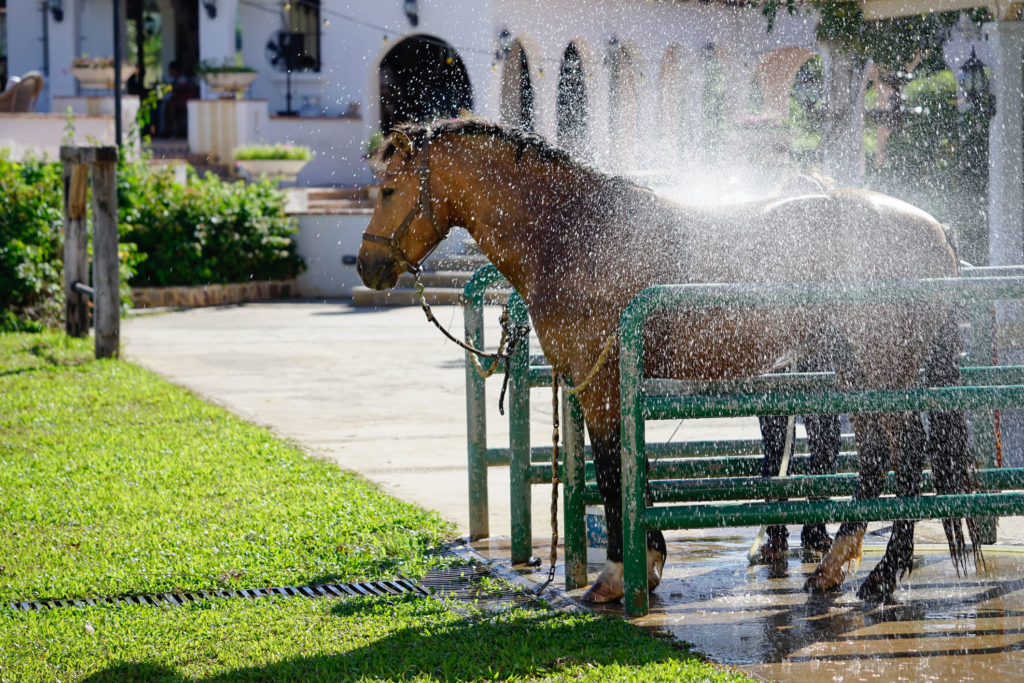
10 Summer Horse Care Resources on TheHorse.com
High temperatures and humidity can make caring for horses a challenging endeavor.

High temperatures and humidity can make caring for horses a challenging endeavor.

A U.S. Equestrian Team veterinarian who has overseen the shipping of horses to six Olympic Games shares what steps to take before, during, and after a long-distance trailer ride.
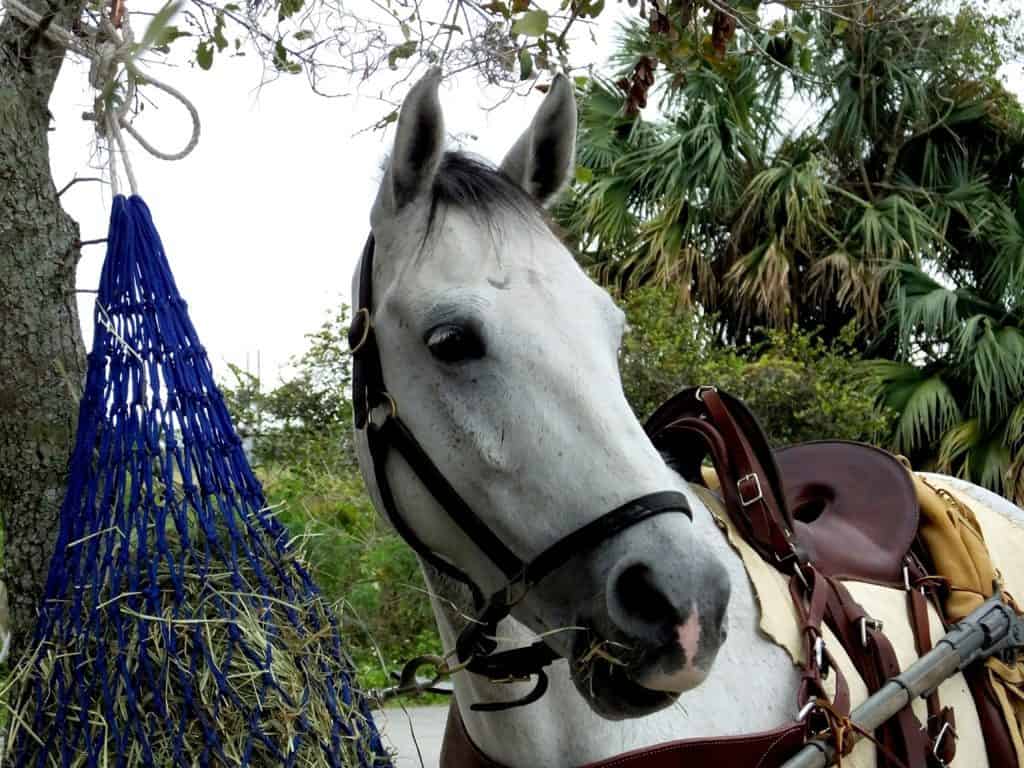
Riding and camping in wilderness areas can present challenges for feeding your horse. Here are some tips.

Nearly half of the European feed samples researchers analyzed had levels of pyrrolizidine alkaloids—naturally occurring, potentially toxic organic compounds—that were higher than the accepted maximum tolerated levels, they said.

One study presented at the 2019 Equine Science Society Symposium found the answer. Also learn about how vibration plates really affect horses, if GPS accurately measures horse speed, and more.

Read about research into increasing the time horses spend eating (a good thing) without feeding them too much (a bad thing), along with more take-homes from the 2019 Equine Science Society Symposium.
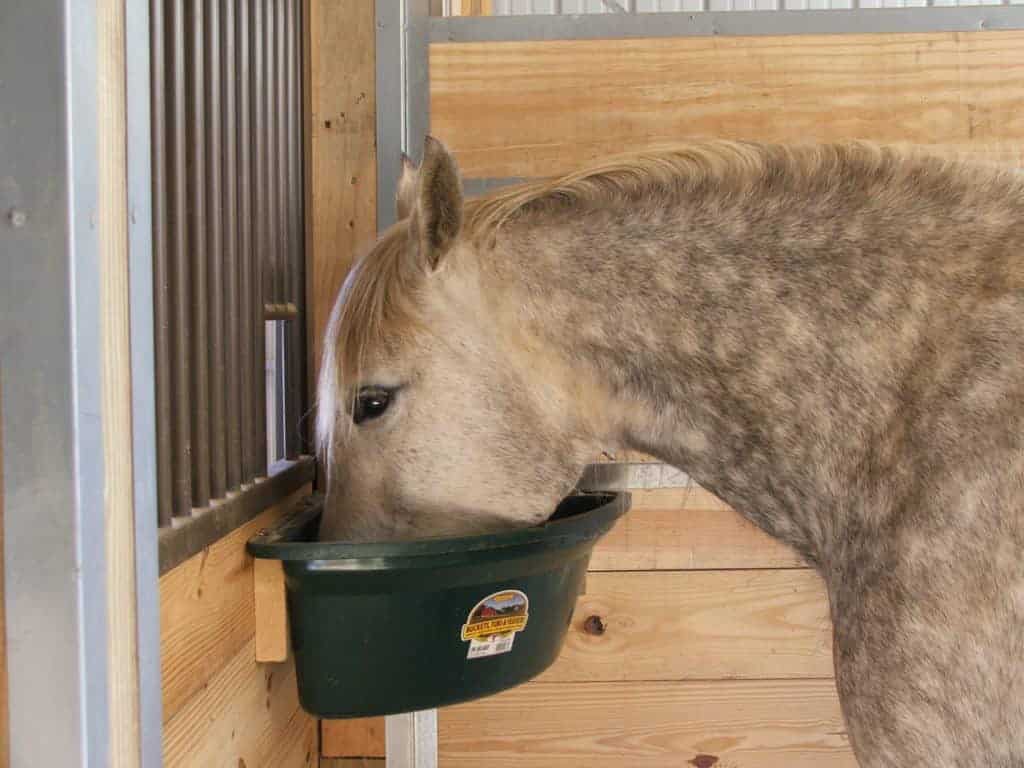
What flavors do they like? Find the answer and read other nutrition tidbits from the 2019 Equine Science Society Symposium.

Surgeon Dr. Anthony Blikslager shares his perspective on preventing horse colic.
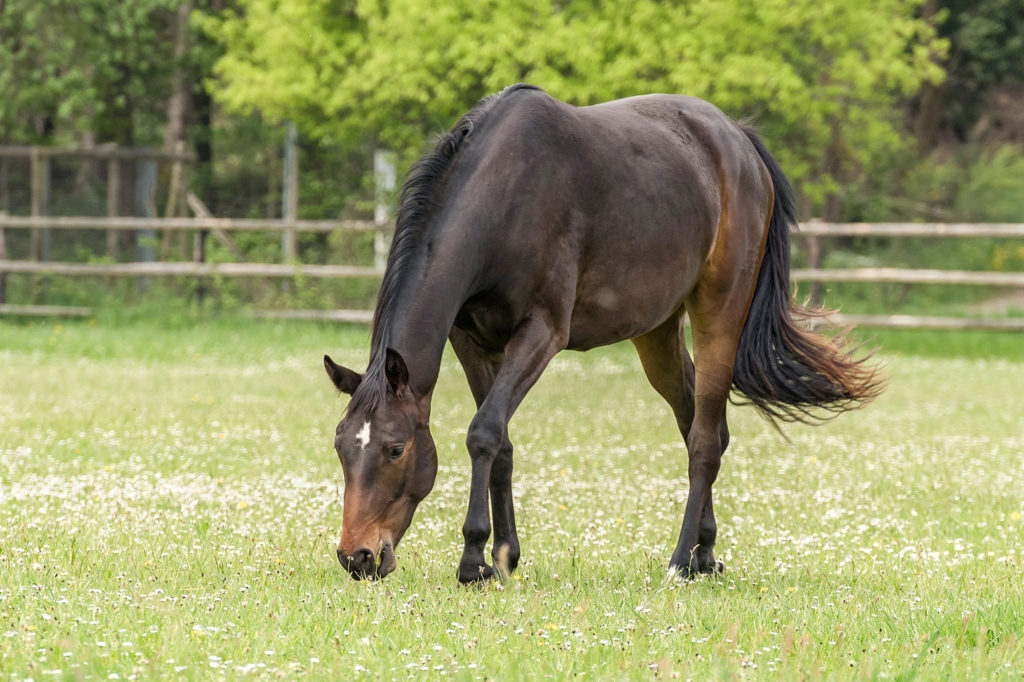
Horses with grassy turnouts graze all day, so they don’t need extra forage when they’re stalled at night, right? Not so fast, our nutritionist says. Here’s why.

Researchers recently found that, despite what can be an arduous first year of transition, healthwise, owners are overwhelmingly very satisfied with their horses and most said they’d buy an OTTB again.

Cargill is voluntarily expanding its livestock and horse feed recall due to elevated aflatoxin levels. The original recall was initiated May 6.

Do fish help keep horse water tanks clean? Maybe not, our nutritionist says, but they might have other benefits. Here’s why.

With routine blood work and a strategic supplementation protocol, you can help your horse avoid the negative consequences associated with vitamin E deficiency. Here’s how.
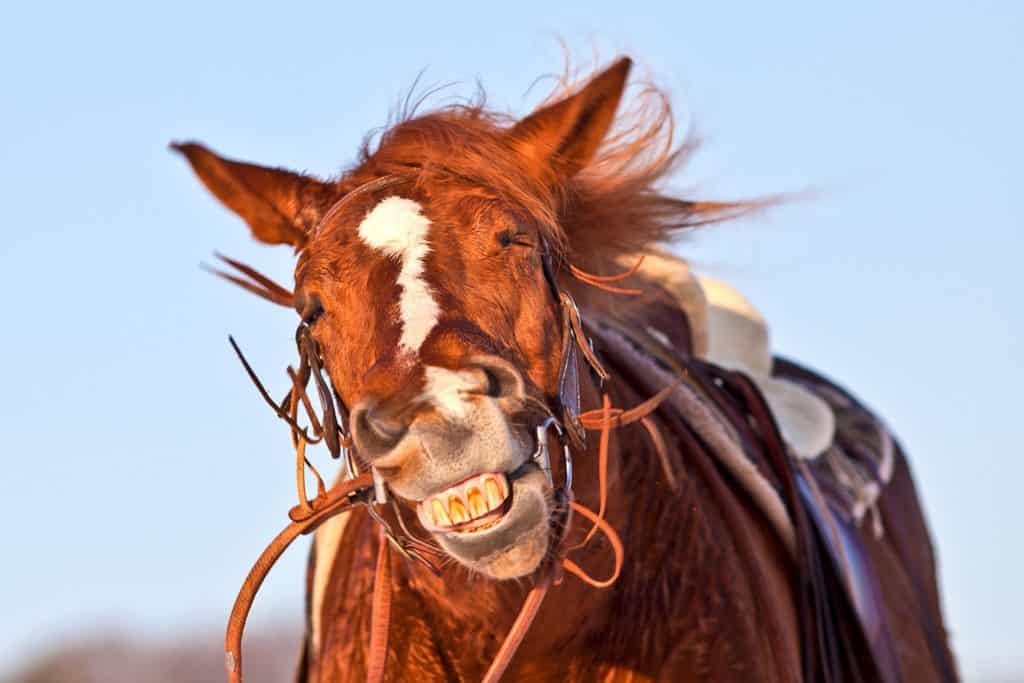
Some severe headshaking cases that are resistant to existing treatments and can significantly compromise a horse’s quality of life. But researchers have recently determined that a supplementation regimen could help.

Pay close attention to and never ignore possible red flag indicators that arise when considering or visiting horse boarding barns. Here are some of the issues potential boarders might encounter.

What are aflatoxins, how do they end up in livestock feed, and are they dangerous to horses? Our equine nutritionist explains.
Stay on top of the most recent Horse Health news with
"*" indicates required fields